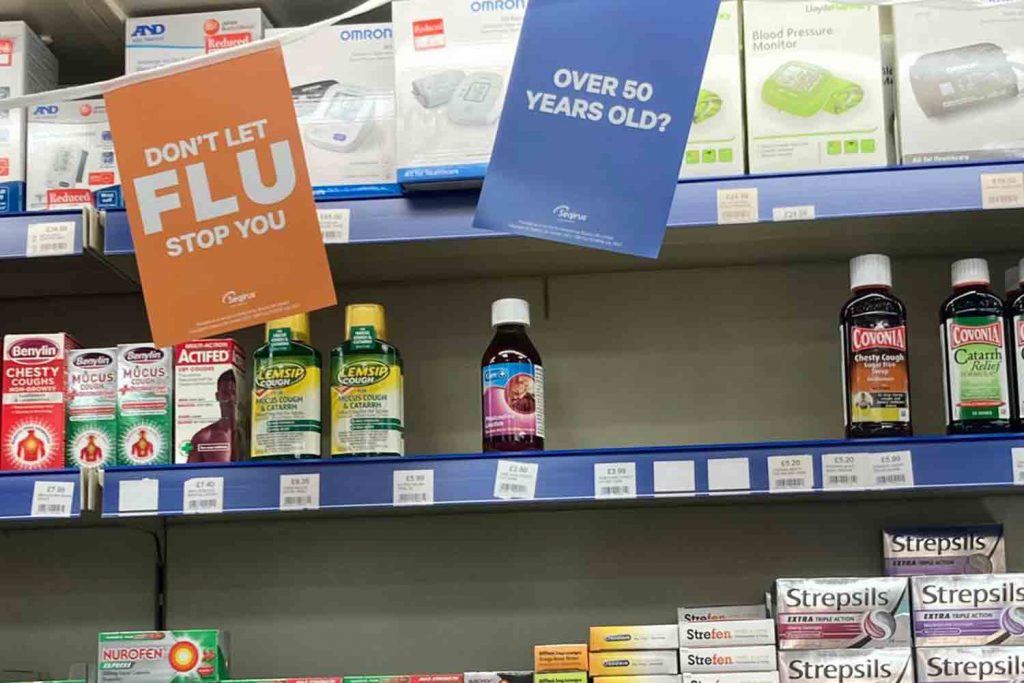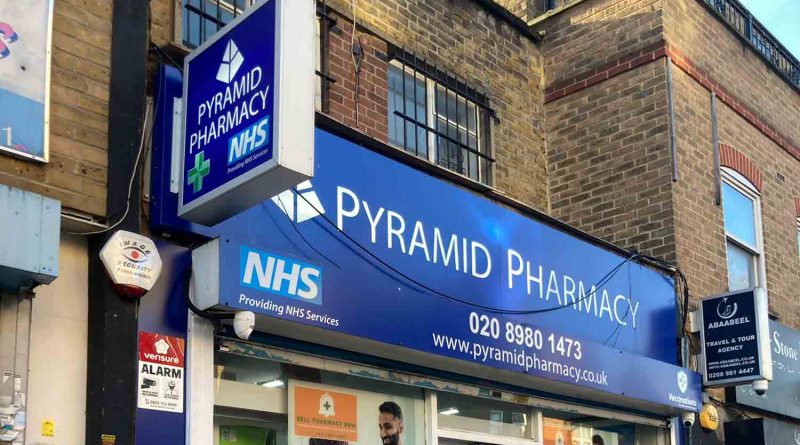Roman Road pharmacies firefighting for the NHS during winter health crises
Pharmacies on the Roman are having to cope with supply shortages amid a winter cold and flu outbreak and an overwhelmed NHS.
Bell Pharmacy on Roman Road bought Pyramid Pharmacy, pictured above, and will take over the premises on 520 Roman Road. Bells’ previous store, six doors along, was deemed too small in the face of high winter demand.
A greater need for medicine and prescriptions has been compounded by global supply issues, which have tested pharmacies nationwide.
Sinclair’s Pharmacy on Roman Road revealed they had been dealing with severe antibiotics shortages. Bindesh Patel, manager of Sinclair’s, said: ‘One day we completely ran out of Amoxicillin and had to turn people away.’
Sinclair’s, Bell, Parnell, and Massingham pharmacies said they struggled to stock liquid antibiotics due to the Strep A outbreak.
Other basic health products such as cough syrup, Lemsip and Night Nurse had almost run out in most Roman Road pharmacies, and some customers seeking basic medicine were turned away.

Employees of Massingham Pharmacy said many of their customers had to be referred to GPs as they needed a greater level of care than their pharmacy could provide. They suggested that the government has encouraged people to make use of medical advice from their pharmacists without properly consulting pharmacies or giving them real support.
Abdul Malique of Parnell Pharmacy said that he had suffered staffing issues over the winter period: ‘Every GP surgery now employs at least one or two pharmacists for their dispensary – that affects local pharmacies because let’s say I need cover for a week, I can’t get locums because they are all in GP surgeries.’
While there are still issues to resolve, Malique said pharmacies are now better equipped and their employees have superior training.
‘On the bright side, we are being utilised where we can, so we can now do blood pressure tests and hypertension checks when we couldn’t before,’ he said. ‘Pharmacists now have to complete a four-year BSE pharmacy degree as well as one year of pre-registration training, enabling them to take on tasks that were once the domain of GPs.’
Richard Murray, Chief Executive of the think tank Kings Fund supported this view in a statement. ‘We have more than 11,000 community pharmacies on high streets throughout the country… seeing them and using them as the highly qualified professionals they are is the first step to keep people out of hospitals,’ he said.
The last year was hard for our overstretched local pharmacies. Brexit meant the UK has had to use a different authorisation company to the EU for medicine imports, causing delays.
On top of that, Malique from Parnell said that the Ukraine war meant he was unable to stock camomile lotion, their main treatment for chickenpox, for months. This was because a key ingredient is from Ukraine.
A report published last month by the Royal Pharmaceutical Society laying out their ten-year plan said: ‘The healthcare service needs to re-build for now and for the future, addressing the health inequalities exposed by the pandemic, and the capacity and demand challenges that the NHS faces. We think that pharmacy teams can increasingly play a key role.’
According to NHS England: ‘There are currently over 1000 full-time equivalent clinical pharmacists working across the country through the NHS England Clinical Pharmacists in the General Practice Programme since it started in 2015.’
As the winter health crisis deepens, we can be encouraged that our pharmacies on the Roman are doing what they can to meet the shortfall seen in the NHS and from GPs.
Read more on the topic in an article about the important role Roman Road pharmacies played during the Covid pandemic.


